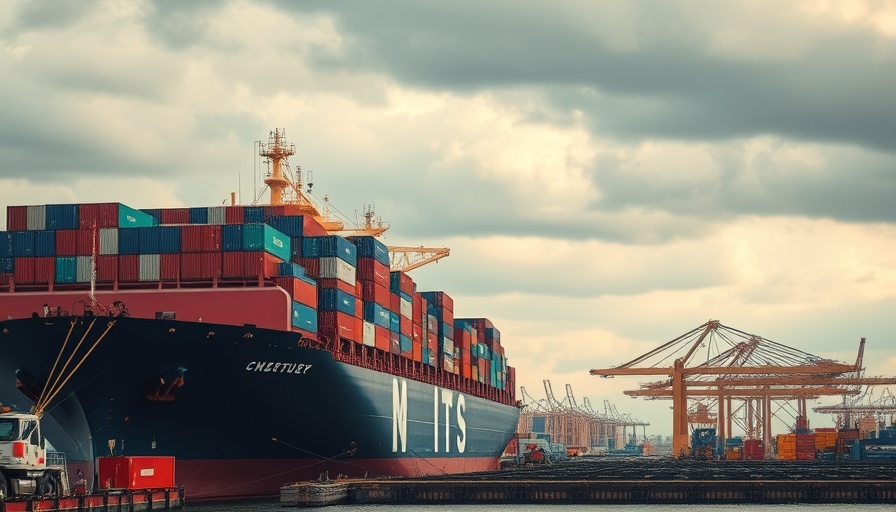
Understanding Consumer Sentiment Amid Tariff Uncertainty
As global political climates shift, consumers in the U.S. find themselves caught in a web of uncertainty surrounding tariff policies that could significantly impact their personal finances and the broader economy. Recent surveys highlight a growing concern about the dual challenges of rising inflation and a possible economic slowdown.
The Current Landscape: Mixed Signals from Consumer Surveys
The University of Michigan's consumer sentiment index recently noted a 16% rebound in consumer confidence from May to June, indicating that consumers may be experiencing a momentary boost. However, the overall sentiment remains subdued, with the index down 18% from the previous December. According to survey director Joanne Hsu, "consumer views are still broadly consistent with an economic slowdown and an increase in inflation to come," which is a reflection of the underlying anxieties consumers face.
On a similar note, the Conference Board's Consumer Confidence Index dropped by 5.4 points in June, retreating to a concerning 93. Senior economist Stephanie Guichard pointed out that tariffs are still top of mind for consumers, with many fearing their impact on prices and the economy.
Inflation: A Growing Concern for U.S. Households
The impact of tariffs on inflation is a critical aspect of consumer unease. Economists predict that these tariffs could inflate prices further, inhibiting spending behaviors. In fact, the latest report from the Federal Reserve showcases consumer spending decreasing by $29.3 billion in May, further straying from the Fed's inflation target of 2%. This decline not only reflects immediate consumer trepidation about spending but also hints at a potential slowdown in hiring and economic activity.
Global Events and Their Local Repercussions
As tensions in the Middle East briefly drove oil prices up by 20% in June, they have since declined, with attacks by Israel and the U.S. on Iran failing to escalate into larger conflicts. While these international events do not appear to have a direct correlation with current U.S. economic conditions, they subtly remind consumers of the interconnected nature of global markets and their local finances.
As the political landscape continues to shift, so does consumer sentiment. With ongoing negotiations around tariffs, uncertainty looms as the Trump administration postpones many country-specific tariffs initially slated for implementation.
The Future of Economic Policy: Expert Perspectives
Federal Reserve policymakers suggest that measures such as interest rate cuts may arrive this year to combat rising unemployment, but they maintain a cautious stance, awaiting clarity on how tariffs will impact inflation. This wait-and-see approach keeps consumers on edge, as these shifts directly influence their financial planning and consumption patterns.
Broader Implications: Consumer Actions and Adaptation Strategies
In light of this uncertainty, consumers are encouraged to consider various strategies to safeguard their financial well-being. This might include evaluating necessary expenses, leveraging available discounts, and staying informed about economic forecasts. Understanding the potential impact of tariffs can empower consumers to make proactive choices and adapt to shifting economic conditions.
While the ongoing trade discussions remain volatile, fostering a keen awareness of consumer sentiment and influence from government policies will be essential for navigating this complex economic landscape.
 Add Row
Add Row  Add
Add 




Write A Comment